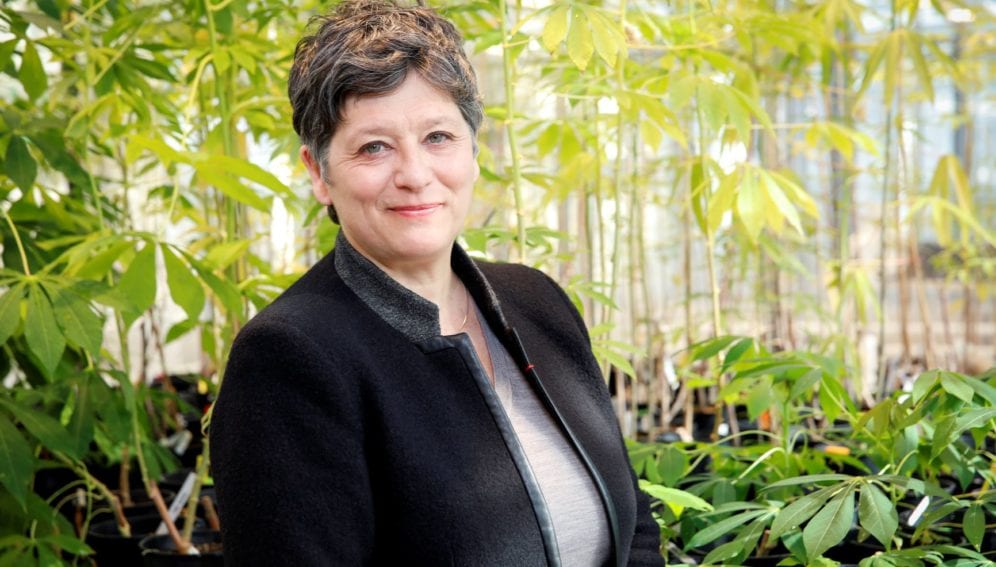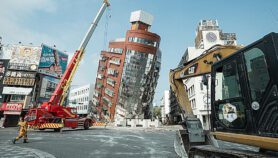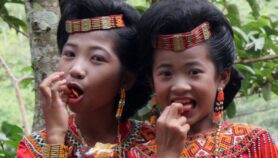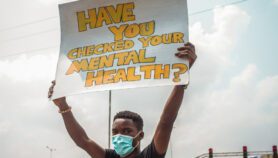By: Julien Chongwang
Send to a friend
The details you provide on this page will not be used to send unsolicited email, and will not be sold to a 3rd party. See privacy policy.
This year, Valerie Verdier became the first woman to be appointed Chairman of the Board and Chief Executive Officer of the French National Research Institute for Sustainable Development (IRD), taking the reins from Jean-Paul Moatti.
As a plant pathologist and research director at the institute, she had previously been responsible for its department of ecology, biodiversity and functioning of continental ecosystems.
Verdier took office in February, a period defined by the COVID-19 pandemic, with its limits on travel and human contact, and in an organisation where fieldwork is essential.
In an interview with SciDev.Net, Verdier explains how the IRD, under her leadership, is organising itself amid the pandemic to accomplish its mission and meet the challenges it faces.

You arrived at the head of the IRD in February 2020 in the midst of COVID-19. Did you see that as an obstacle or an opportunity?
It’s neither one nor the other. I admit that I was not expecting to take up my duties in this context of a health crisis. I have been working at IRD for more than 30 years. So I have the advantage of knowing the organisation, the teams and how they work. That has helped me a lot to understand this ongoing crisis. Obviously, to some extent, it is not advantageous to take up office under these conditions because, naturally, my core business is in making direct connections with my colleagues on the ground, and my first intention was to visit our partners in Africa.
Unfortunately, since March, that’s not been possible. I am caught up in other priorities, which are to manage a crisis, to ensure that the institution continues to function, that our agents can continue to work in the best possible conditions, and to reassure our contacts abroad and our partners. I hope that we will see the end of this crisis soon so that we can get back to a normal mode of operation and get back out in the field.
With the reduction or even ban on travel, how do you manage to work without going into the field?
True, most of our agents are telecommuting, but the labs have never been closed. They have continued their activities and put in place business plans that allow them to work in an almost normal way. Thirty per cent of our workforce is posted abroad or on the move; this approach, however, is partially suspended. But I have reopened the possibility for our officers to visit their duty stations abroad. So these activities might have slowed down in the field, but I haven’t heard of our projects or activities being put in great difficulty. There are certainly difficulties, but they are not insurmountable. And this is thanks to our wide network of partners in the field who allow us to continue to work. Moreover, we’ve put in place project ARIACOV [an action research project in support of the African response to COVID-19] in Sub-Saharan Africa, as well as a COVID-19 interdisciplinary and partnership scientific subcommittee.
What does crisis management involve at the level of a research institute like IRD?
This crisis calls for interdisciplinary approaches. For example, we have ecologists who are seeking to understand the mechanisms by which such a pandemic can emerge in the ecosystems where we work. There are doctors who are focused on the development of tools to detect and understand this epidemic. We have researchers who have redirected their priorities by undertaking studies in epidemiology or diagnostics. In concrete terms, the ARIACOV project mobilises interdisciplinary teams working to understand all aspects of the pandemic: from a social perspective as well as from an epidemiological one and from the point of view of developing diagnostic tools.
Beyond the management of COVID-19, what are your other priorities at the head of the institution?
Science must be at the heart of the actions of our establishment. The IRD works towards development and sustainable development and we work in true cooperation and collaboration with our partners. It’s really what sets IRD apart. I would like to give even more resources to conducting research that is truly collaborative and that appeals to the notion of sustainability science. That is to say, research and science that is not centered only on individual disciplines. For example, if we had approached the COVID-19 crisis or the Ebola crisis only from a medical angle, it would not have been satisfactory. Integrated approaches are needed: interdisciplinary approaches which respond much more to the concerns of users. You have to solve problems and to do that you have to work with an interdisciplinary approach. One of the priorities I give to my teams is to engage in sustainability science. And for that, I have appointed a manager who is specifically in charge of driving this dynamic within the institute.
“Science must be at the heart of the actions of our establishment”
Valerie Verdier
Another priority is to strengthen the skills of our researchers in the [global] South. This is a very important aspect for me. It is about making more room for young people and paying close attention to professional equality between men and women. We also want to be more respectful of the environment.
We must give our teams at the IRD more resources and more visibility. We have a special place in teaching and research in France and we must maintain this position, be more ambitious and, with our partners, participate in strengthening teaching and research in the countries where we are represented.
Africa is particularly close to our hearts. This is where I started my career and this is where we have built a very significant partnership for a long time.
At the start of the COVID-19 pandemic in Africa, French-speaking countries on the continent relied on Western laboratories to carry out screening tests. How does the IRD help build scientific autonomy for developing countries so that they no longer always have to look to the global North at the first sign of a crisis?
The international joint laboratories are very operational. They are built with our partners to carry out diagnostics and train staff in diagnostics. We have a good example in Guinea where, in the context of the Ebola crisis, we set up a laboratory called CERFIG (Guinea Infectious Disease Research and Training Centre), built jointly with our partners, with the IRD playing a pioneering role. It is a centre where we now come to do training, diagnostics, etc. This is the essence of the IRD. We build things up over time. We are in a collaborative process precisely to make technologies accessible to all our partners. For COVID-19, we have set up laboratories in the field so that people can come and do their tests.



Workshops organised by the IRD in the global South help scientists build skills in networking, editing, and information management. Image credit: IRD – Jean-Michel Boré
As a woman, is there an added value that you would like to bring to the IRD’s work in favour of women researchers in the global South?
This is a subject close to my heart. I am the first woman to take up this role at the IRD. This sends a strong signal. Strengthening the place of women in science and research is a guiding principle for me. And with our partners, there are several actions that we are undertaking to promote the place of women in science in the [global] South.
In concrete terms, a cross-cutting working group has been set up which has made proposals for an action plan to be drafted and implemented from 2021. This plan will make it possible to organise and monitor the efforts of the institution on this long-term approach, according to four axes: the prevention and addressing of pay gaps’ the mix of professions, professional paths and career paths; the link between personal and professional life; and finally the fight against sexist and sexual violence. But, I also think that we must take time to analyse the situation in different countries with our partners to both learn from them and bring our vision to bear in order to ensure that we advance the training of women in Southern countries.
In view of the current context and challenges, are there any particular areas of interest that you would recommend to young people who want to pursue a career in research?
I would encourage them by telling them that it is a great occupation where you have the freedom to think, do, design and reflect on the major current issues: climate, biodiversity, conservation of natural resources, health, reduction of social inequalities, etc. These are all promising sectors. It’s difficult to answer on a particular field. I would encourage them to take a holistic approach to open their minds as widely as possible, knowing that you are not going to solve a problem with one discipline. I would therefore direct them towards transdisciplinary concepts. There are big digital issues in Africa at the moment. It’s a very attractive industry; digital is at the service of all and the answer to a large number of problems.
This translated interview was edited for brevity and clarity.
This article was produced by SciDev.Net’s Sub-Saharan Africa French edition.














